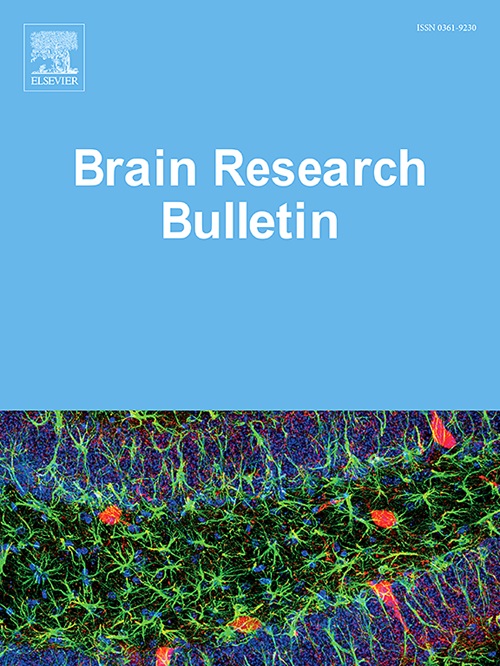New insights into tryptophan metabolism in ischemic stroke: A promising therapeutic target
IF 3.7
3区 医学
Q2 NEUROSCIENCES
引用次数: 0
Abstract
Ischemic stroke is a major cause of disability and mortality worldwide. Dysregulation of tryptophan metabolism has been increasingly implicated in its pathophysiology. Tryptophan is catabolized through three principal pathways: the kynurenine, serotonin, and microbial indole pathways, each producing bioactive metabolites that modulate neuroinflammation, oxidative stress, excitotoxicity, and immune responses following stroke. An elevated quinolinic acid/kynurenic acid ratio reflects enhanced neurotoxicity, while alterations in gut-derived indole metabolites impair gut-brain signaling. This review highlights key enzymes—IDO, TDO, TPH—and receptors such as AHR as potential therapeutic targets. Although preclinical studies are promising, clinical translation remains challenging due to metabolic complexity, blood-brain barrier limitations, and individual variability in gut microbiota. Future research should integrate multi-omics technologies and well-designed clinical trials to develop targeted therapies for ischemic stroke.
缺血性卒中中色氨酸代谢的新认识:一个有希望的治疗靶点
缺血性中风是全世界致残和死亡的主要原因。色氨酸代谢失调已越来越多地涉及其病理生理。色氨酸通过三种主要途径分解代谢:犬尿氨酸、血清素和微生物吲哚途径,每一种途径都产生生物活性代谢物,调节中风后的神经炎症、氧化应激、兴奋毒性和免疫反应。喹啉酸/犬尿酸比值升高反映神经毒性增强,而肠源性吲哚代谢物的改变损害肠-脑信号传导。本文综述了ido、TDO、tph等关键酶和AHR等受体作为潜在的治疗靶点。尽管临床前研究很有希望,但由于代谢复杂性、血脑屏障限制和肠道微生物群的个体差异,临床转化仍然具有挑战性。未来的研究应结合多组学技术和精心设计的临床试验来开发缺血性卒中的靶向治疗方法。
本文章由计算机程序翻译,如有差异,请以英文原文为准。
求助全文
约1分钟内获得全文
求助全文
来源期刊

Brain Research Bulletin
医学-神经科学
CiteScore
6.90
自引率
2.60%
发文量
253
审稿时长
67 days
期刊介绍:
The Brain Research Bulletin (BRB) aims to publish novel work that advances our knowledge of molecular and cellular mechanisms that underlie neural network properties associated with behavior, cognition and other brain functions during neurodevelopment and in the adult. Although clinical research is out of the Journal''s scope, the BRB also aims to publish translation research that provides insight into biological mechanisms and processes associated with neurodegeneration mechanisms, neurological diseases and neuropsychiatric disorders. The Journal is especially interested in research using novel methodologies, such as optogenetics, multielectrode array recordings and life imaging in wild-type and genetically-modified animal models, with the goal to advance our understanding of how neurons, glia and networks function in vivo.
 求助内容:
求助内容: 应助结果提醒方式:
应助结果提醒方式:


